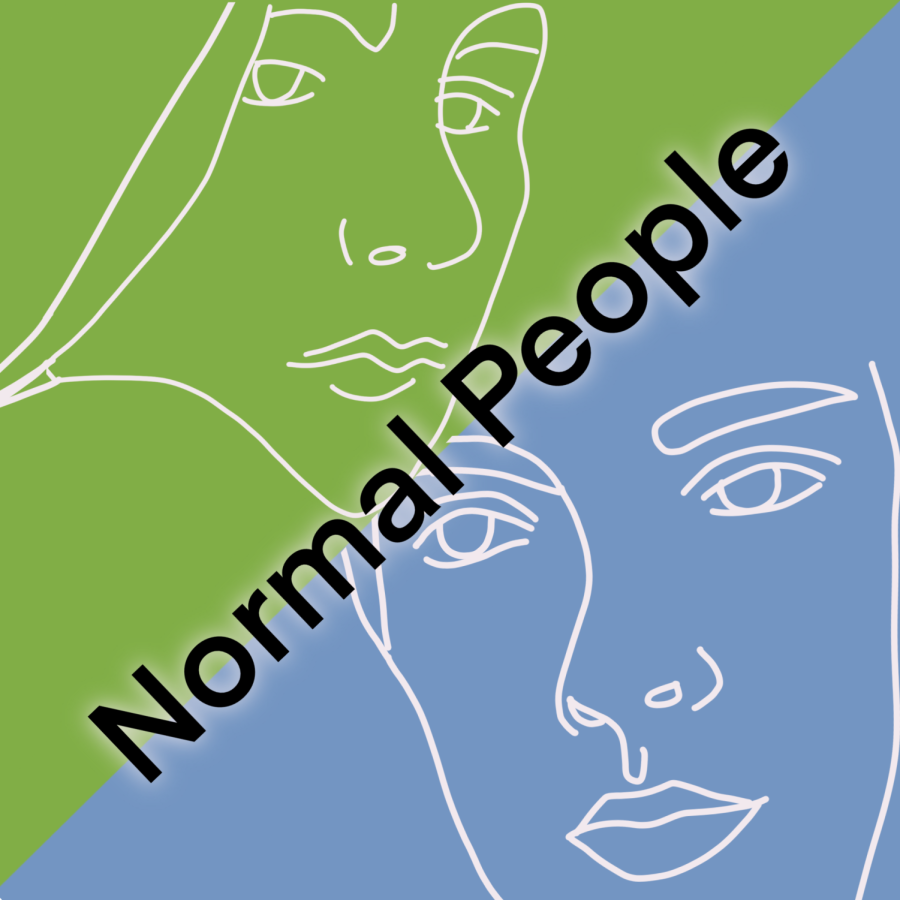‘Normal People’ — a love letter to coming-of-age
Novel is celebration of flawed beings
March 29, 2022
SPOILER-FREE
“Normal People” by Sally Rooney. You’ve heard of it, haven’t you?
Sally Rooney, Irish novelist extraordinaire, has taken the literary world by storm. Rooney’s novels have captivated readers, carving a space in the coming-of-age conversation and cementing Rooney’s works as cult classics. “Normal People” — the follow-up to Rooney’s stunning 2017 debut, “Conversations with Friends” — epitomizes both the beauty and the brutality of the human experience.
“Normal People” is a celebration of flawed beings; a love letter to coming-of-age; a mirror of humankind and all its glory and gore; an exquisite exploration of the grief in growing older.
“Normal People” tells the tale of Marianne, of Connell — of Marianne and Connell. We join them as their journeys in high school conclude and their journeys in university commence. We witness as they reconcile with the practicalities of the present and the fluidity of the future. We celebrate their victories, mourn their losses and watch as their paths align and diverge.
How do you navigate the adventures of high school whilst alleviating the aches of adolescence? How do you unlearn your desire to be loved and respected: even by people who don’t extend love and respect to you? How do you enter relationships, both romantic and platonic, when the echoes of childhood trauma plague the paths of your psyche? How do you untangle your identity from the family who raised you, the places you’ve been raised, the friends you’ve been raised alongside? How do you cope with the bewildering knowledge that you’re not like normal people?
The subject matter of “Normal People” is elevated by Rooney’s expressive prose. Rooney has an uncanny ability to vocalize elements of everyday life in a profound manner — she transforms simplicities into soliloquies, mundanities into miracles. With seamless ease, Rooney scatters the pages with thoughtful analyses of modern society. Weaving in and out of tenses, leaping from year to year, Rooney uses Connell and Marianne as vessels to carry ponderings on the nuances and subtleties of human behavior.
By nature, reading grants us the freedom to undergo varying degrees of introspection. Yet, Rooney’s artful articulation of the human experience allows readers to introspect on an even deeper level. It’s as if Rooney’s musings are a mirror, the words fearlessly gripping us by the shoulders, forcing us to confront the complexities in our reflection. Rooney’s polarizing stylistic choice to abandon the use of quotation marks is significant in this regard: it emphasizes the ambiguity between our inner and outer monologues.
Coming-of-age is not something that happens once — it’s not something that ends as quickly as it begins, begins as quickly as it ends. Coming-of-age is a perpetual phenomenon: an object always in motion. Coming-of-age is akin to falling in love. When we fall in love, we rarely fall and land. No, when we’re in love — when we’re unapologetically, irreversibly in love — we’re always in a state of falling. Aren’t we?
In “Normal People,” we join Marianne and Connell as they come-of-age, as they fall. “Life offers up these moments of joy, despite everything.”
Pick up a copy or two of “Normal People” at your favorite independent bookstore. Alternatively, support your local library and reserve a copy. No matter the medium, trust that “Normal People” is worth the read.









